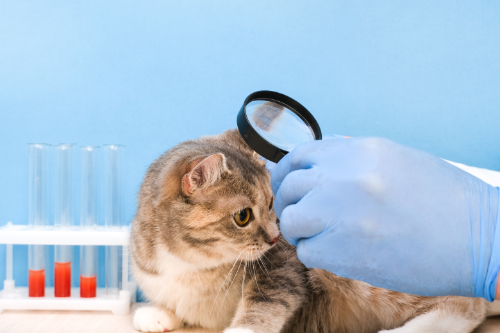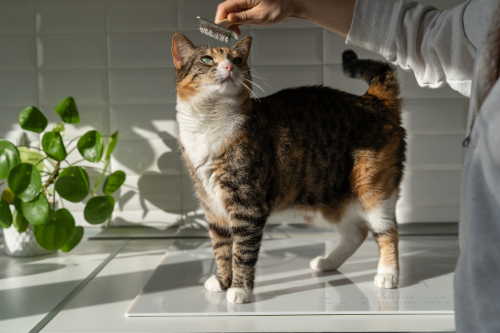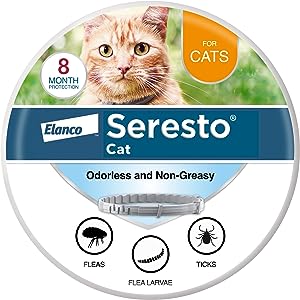Introduction
Hair loss on ears in cats, also known as preauricular alopecia, is a common issue among cats. If you notice your cat losing hair on their ears, it’s important to address the issue promptly to prevent further complications. In this article, we will discuss the causes, diagnosis, prevention, and home remedies for hair loss on ears in cats.
Causes of Hair Loss on Ears in Cats
One of the most common causes of hair loss on ears in cats is ear mites. Ear mites are tiny parasites that live in the ear canal of cats and can cause irritation, itching, inflammation, and hair loss. Other possible causes of hair loss on ears in cats include allergies and other underlying health conditions.

Ear mites
Symptoms of Ear Mites
If your cat has ear mites, you may notice them scratching or rubbing their ears frequently. They may also have dark, waxy discharge from their ears and a foul odor. In severe cases, ear mites can cause partial deafness, so it’s important to address the issue promptly. After all, deaf cats are more likely to have serious traffic accidents.
Treatment for Ear Mites
If you suspect your cat has ear mites you can treat him with the following ear drops. Use it once a day for 7 days, then stop for 7 days and again use it once a day for 7 days. The reason is that the baby-stages of the mites don’t always die from the treatment. During the first two weeks they mature, but do not reproduce yet. When they are mature you can get rid of them using the treatment against ear mites.
Ear infections
Symptoms of ear infections
When cats suffer from an ear infection, they rub their ears a lot against furniture or objects. Or they scratch it a lot. This can cause their ears to go bald. When you treat the ear infection the hairs should grow back. You can read more bout ear infections in cats on the specific page about that subject.
Allergies
Symptoms of Allergies
If your cat is experiencing hair loss on their ears due to allergies, they may exhibit symptoms such as itching, redness, swelling, and discharge. Allergies can be caused by a variety of factors, including pollen, dust, mold, and certain foods. Most of the time allergies also cause ear infections or skin problems on the rest of their body.
Treatment for Allergies
If your cat is experiencing allergies, you need to find out what specific allergen is causing the reaction. Treatment may involve avoiding the allergen or prescribing antihistamines or corticosteroids to alleviate the symptoms. With the following products you can try to find out what allergen is causing the problems in your cat.
Preauricular Alopecia
Symptoms of Preauricular Alopecia
Preauricular alopecia is a condition characterized by hair loss on the ears and around the eyes. It is common in older cats and may be due to hormonal imbalances, genetics, or other underlying health conditions. The skin at the level of the cat’s temporal region, just in front of its ear, always has a thin coat of hair because there are small glands in the skin that cats use to mark their territory. It is normal that your cat is a bit bald around this area. Especially in warmer climate.
Treatment for Preauricular Alopecia
If your cat is experiencing an abnormal form of preauricular alopecia, your veterinarian may recommend a variety of treatments, including hormone therapy, dietary changes, or topical medications to promote hair growth.
Other Possible Causes
Other potential causes of hair loss on ears in cats include fungal infections, bacterial infections, and hormonal imbalances. In some cases, hair loss may be a sign of an underlying medical condition, such as hyperthyroidism or Cushing’s disease. It is important to consult with a veterinarian to rule out any serious health issues. If you suspect one of these conditions, it’s best to see your veterinarian.
Diagnosis of Hair Loss on Ears in Cats
If you notice hair loss on your cat’s ears, it is important to find out what is causing it. In the text above you can read what home remedies you can do with a specific problem. If that doesn’t help, a veterinarian can perform a physical exam and run diagnostic tests to determine the underlying cause of the hair loss. Diagnostic tests may include skin scrapings, blood work, or allergy testing.

Prevention of Hair Loss on Ears in Cats
Preventing hair loss on ears in cats involves taking steps to reduce the risk of the underlying causes. Regular grooming can help remove allergens and parasites from the cat’s fur. Keeping the environment clean and free of parasites can also help prevent ear mites. If you use a Seresto cat collar you also prevent mites to enter your cat. But unfortunately this product is not strong enough to kill ear mites once they have arrived. They just don’t want to live on your cat when he is wearing this collar.
Additionally, managing a cat’s diet and ensuring it is free of potential allergens can help reduce the risk of allergic reactions. You can improve your cat’s skin resistance by giving him salmon-oil on his food. This consists of omega-3 and omega-6 fatty acids that improves the strength of the skin and thus in the ear.
Home Remedies for Hair Loss on Ears in Cats
Above there are home-remedies mentioned per cause. But if you haven’t got a clue what is happening you can also try to use the following products. Aloe vera gel can help soothe irritated skin and promote healing. Coconut oil can help moisturize dry skin and prevent itching. Vitamin E oil can help promote hair growth and reduce inflammation.
Conclusion
Hair loss on ears in cats can be caused by a variety of factors, including ear mites, allergies, ear infections and preauricular alopecia. Preventative measures, such as regular grooming and keeping the environment clean, can help reduce the risk of hair loss. If home remedies don’t work as you hoped, consult your veterinarian to solve the problem.








